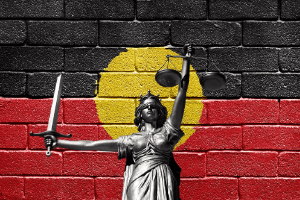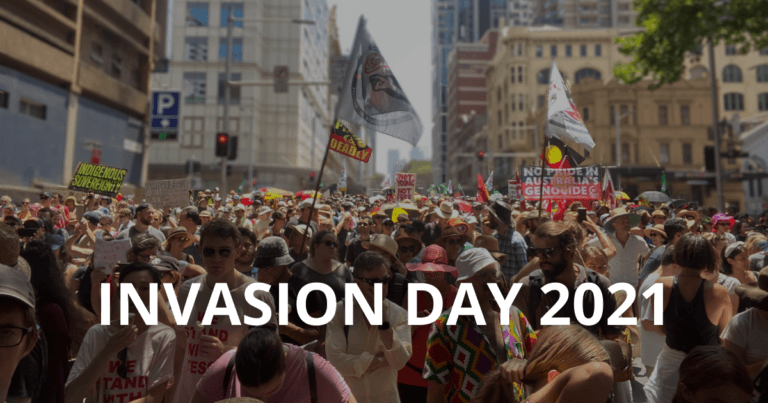In the span of a few days, Sydney witnessed two horrific attacks that sent shockwaves through the nation. At the bustling Westfield Bondi Junction shopping centre, a lone attacker unleashed a knife rampage, tragically killing six people (as of time of writing). In the end, policewoman, Amy Scott, shot the attacker dead.
This event caused widespread panic and fear, leaving the city of Sydney mourning.
Just days later, another knife attack unfolded, this time at the Assyrian Church of the Good Shepherd. Here, a teenager targeted a religious leader during a live-streamed service. While thankfully no lives were lost, the attack left the community deeply shaken. However, in a stark contrast to the Bondi Junction incident, this act was swiftly classified as a terrorist attack by authorities.
This distinction between the two events – both causing immense terror – has ignited a crucial debate. Why was one labelled terrorism while the other wasn’t? Let’s delve deeper into the factors that shaped these classifications and explore the complexities surrounding the definition of terrorism in Australia.
The Sydney attacks have reignited the debate about whether violence motivated by misogyny should fall under terrorism definitions. Currently, Australian terrorism laws focus on acts committed to advance a political, religious, or ideological cause.
Here’s a breakdown of the arguments for and against including gender-based targeting:
Arguments FOR Including Misogyny
- Severity of Harm: Mass violence against women can instil widespread fear and disrupt social order, similar to traditional terrorism.
- Incel-Inspired Violence: The rise of incel (involuntary celibate) ideology demonstrates how misogyny can manifest as violent extremism. Currently no evidence has been released to suggest the Bondi attacker Joel Cauchi held these views and his distraught father told media that he may have targeted women as, “He wanted a girlfriend and he’s got no social skills and he was frustrated out of his brain”.
- Symbolic Attacks: Targeting women based on gender can be a deliberate attempt to intimidate and control an entire population group.
Arguments AGAINST Including Misogyny
- Existing Laws: Violent acts against women are already punishable as criminal offences like murder and assault.
- Scope Creep: Expanding the definition of terrorism could lead to overreach and limit civil liberties.
- Focus on Root Causes: Efforts should focus on addressing the underlying societal issues that contribute to misogyny.
The Nuance of Motive
Assigning a single motive to complex acts can be challenging. In the Bondi Junction attack, while the victims were primarily women, was the attacker motivated by hatred of all women, or were there other factors at play driven by mental health issues? Establishing a clear link between misogyny and terrorism might require a higher threshold.
Increased Police Powers in NSW Terrorist Incidents
When an incident is classified as a terrorist attack in NSW, police gain significant investigative powers under the Terrorism (Police Powers) Act 2002. These include:
- Stop and Search: Police can stop and search people and vehicles in designated areas or based on reasonable suspicion of involvement in terrorist activities.
- Control Orders: Restrictions can be placed on individuals suspected of being involved in terrorism, limiting their movements, associations, and internet access.
- Preventative Detention: Authorities can detain individuals suspected of planning terrorist acts for extended periods without charge.
- Search Warrants: Police can apply for warrants to search homes and businesses with lower thresholds compared to regular criminal investigations.
These expanded powers aim to enhance law enforcement’s ability to identify potential threats, gather evidence, and disrupt terrorist plots.
Concerns and Considerations
- Civil Liberties: Increased police powers raise concerns about potential infringements on individual rights, especially for marginalised communities who may face over-policing.
- Effectiveness: The effectiveness of these powers in preventing terrorism needs ongoing evaluation, ensuring a balance between public safety and freedom.
- Transparency and Accountability: Clear oversight mechanisms are crucial to ensure these powers are used appropriately and not abused.
The Way Forward
The discussion around terrorism definitions and police powers requires careful consideration. While ensuring public safety is paramount, it should not come at the cost of fundamental liberties. Finding the right balance involves:
- Evidence-based Policy: Decisions should be based on data and research, not knee-jerk reactions in the wake of tragedy.
- Public Dialogue: Open discussions are needed to ensure all voices are heard and concerns are addressed.
- Focus on Prevention: Investing in mental health resources, promoting tolerance, and addressing extremism at its roots are crucial to prevent future tragedies.
By fostering a nuanced conversation, we can strive to create safer communities while protecting the very freedoms we seek to defend.

Richard Greenwood
-
Richard Greenwood#molongui-disabled-link
-
Richard Greenwood#molongui-disabled-link






